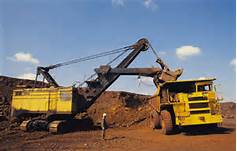Things are changing. This week is full of announcements from some big Australian companies who are changing.Two announcements come from BHP Billiton and AGL and both will have a big impact on the Hunter Region of NSW. Hopefully a positive change that will strengthen the local economies and translate to the housing market.
As you all know property is my number one choice of investment strategy. In contrast, my share market investment experience is pretty limited. In fact, I can nail it down to two things; watching what my managed Superannuation fund does and having a little bit of input into the allocation of my investments each quarter and sitting around a table with a group of girlfriends drinking wine and deciding where we invest our Kash Kow funds.
The Kash Kows was formed about ten years ago when a few women decided we should build our investments and have a bit of fun trying to figure out how the stock market works. We all throw in $25 per month then when there is enough money in the kitty, make some (usually) dodgy decisions on what we buy. We do try and get in 'guest speakers' ply them with alcohol and nibblies then hit them up for a tip. Other times we will actually do some real research to work out what company to invest in. We started as 'share traders' which quickly turned to 'share investors' when none of us had time to watch the daily fluctuations of the share market and actually do the trades.
Luckily for us we had purchased BHP long ago at about $12 a share. While I can safely say we are nowhere near their major shareholders, I do take an active interest in what BHP do, particularly in the Hunter.
'BHP's demerger sees it keep it's Hunter Valley coal mines'. read one headline that caught my eye this week. With the big company deciding to split their interests and assets into two, I wondered what was their criteria in choosing which would stay with BHP and which would be 'spun out'.

Recently BHP was able to boost exports and cut costs sufficiently to overcome the slide in commodity prices. Its current share price is reflecting this. So are the vacancy rates in Muswellbrook and Singleton. Cutting costs meant letting go of contractors and downsizing some divisions. However productivity so it seems, has never been so good.
I read it's the first time in three years that BHP has improved profits year-on-year, and this has been achieved despite prices for some of BHP’s most important commodities – particularly iron ore and copper – trending lower during the 2014 financial year. They seemed to have ramped up their volume in coal.
BHP has said it would include its Illawarra metallurgical coal business in NSW in the demerged group, but would be hanging on to its thermal coal assets in the state’s Hunter Valley. I really didn't know what metallurgical coal was so Goggled it and found out that metallurgical coal is less abundant than thermal coal and is primarily used in the production of coke which is an important part of the integrated steel mill process.
“In a single step, we will significantly increase BHP Billiton’s focus on the exceptionally large resource basins that underpin its competitive advantage. As we move towards a simpler portfolio, comprised of our pillars of Iron Ore, Copper, Coal, Petroleum and potentially Potash, we will become a higher-margin, higher-return business..." said BHP Billiton Chief Executive Officer Andrew Mackenzie. My interpretation of this change is a sign of confidence from the company in the coal mines of the Hunter Valley.
The other big 'change' announcement this week was the AGL and Macquarie Generation (MacGen) owned by the NSW State Government acquisition. The deal covers the Bayswater and Liddell power stations near Muswellbrook, the Liddell solar farm, the Hunter Valley gas turbine near Liddell, the development site ‘‘Bayswater B’’ for a new base load power station four kilometres west of Bayswater, and the Tomago generation development.
From the proceeds, about $700 million is expected to go into the government infrastructure fund Restart NSW to fund high priority future infrastructure projects across NSW like schools, rail, roads and hospitals. The Hunter Infrastructure & Investment Fund will benefit from this.
http://www.hunterinfrastructure.nsw.gov.au/About.aspx
AGL says there are many strategic benefits to this purchase and plans to spend $405 million over four years on revised maintenance and upgrades at its Liddell and Bayswater plants. Hopefully this change and investment will also trickle down into the local economies.
And so I ponder on these two large change projects and have to agree with George Bernard Shaw that "Progress is impossible without change".
www.propertybloom.com.au

